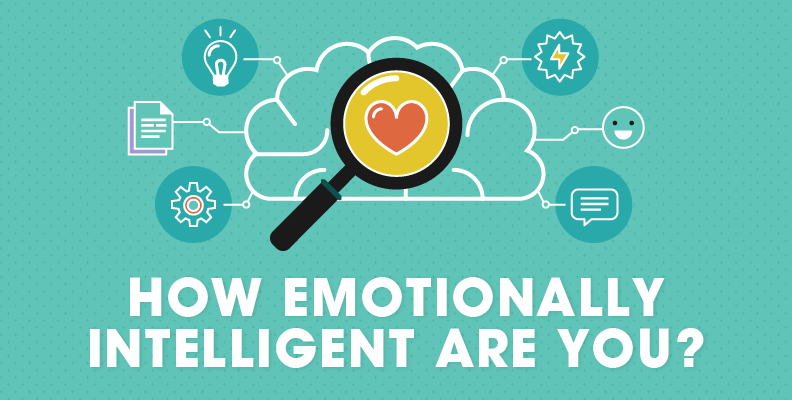 Emotional intelligence is your ability to perceive, understand and manage emotions. You use it every day whether you’re hard at work in the office or dealing with a friend in crisis. Good emotional intelligence improves your relationships and your professional outlook. But how do you know if you’ve got it or not?
Emotional intelligence is your ability to perceive, understand and manage emotions. You use it every day whether you’re hard at work in the office or dealing with a friend in crisis. Good emotional intelligence improves your relationships and your professional outlook. But how do you know if you’ve got it or not?
Being sensitive to your partner’s moods can make all the difference when you spend a lot of time together. But equally, you need to recognize your own feelings and know how to manage them. At work this could take the form of carefully balancing your ambitions with difficult office politics — your emotional intelligence is never switched off!
You can easily improve your emotional skill set by identifying your strengths and weaknesses and taking steps to work on them. For example, if a train of thought is worrying you, stop and ask yourself if your thought process is truly helping you through it. If it’s just making things worse, sit down with a pencil and work things out on paper instead.
If you believe that someone else is overreacting to something, don’t rush to judge or correct them. Instead, take a longer moment to imagine what they’re going through and to construct possible stories about what might be behind their emotions.
Go ahead and use our new infographic to help you figure out what kind of emotional intelligence you have — it makes it easy to identify your strengths and weaknesses.
We all have some level of emotional intelligence, but it’s how we choose to work with it that shows our underlying characters. Take some time to work on your levels of empathy and self-knowledge and you are sure to become a happier, more successful person.

Sources
Salovey, P. et al. (2005). The Science of Emotional Intelligence. jstor.org
Mayer, J.D et al. (1997). What is emotional intelligence? New York: Basic Books.
Aldao, A. (2014). Are You Problem Solving or Ruminating. psychologytoday.com
Kopelman, S. (2014). Make Your Emotions Work for You in Negotiations. hbr.org
Sabatier, M. (2016). A manager’s guide to improving emotional intelligence at work. guardian.co.uk
Marazziti, Donatella, et al. (1992). Psychological stress and body temperature changes in humans. Physiology & Behavior
Becker-Phelps, L. (2013). Don’t Just React: Choose Your Response. psychologytoday.com
Davey, G. (2012). 10 Tips to Manage Your Worrying psychologytoday.com
Krznaric, R. (2014). 5 Ways to Be More Empathetic. time.com
Embed This Image On Your Site (copy code below):






